
The Walking Dead: A New Frontier – From the Gallows PC Review
So, here we are: the final episode of The Walking Dead: A New Frontier. I had waited for this episode with a degree of hesitancy: in my previous reviews, I had been concerned that the last episode would not pull the season back from the brink of mediocrity. Unfortunately, my concerns were well founded.
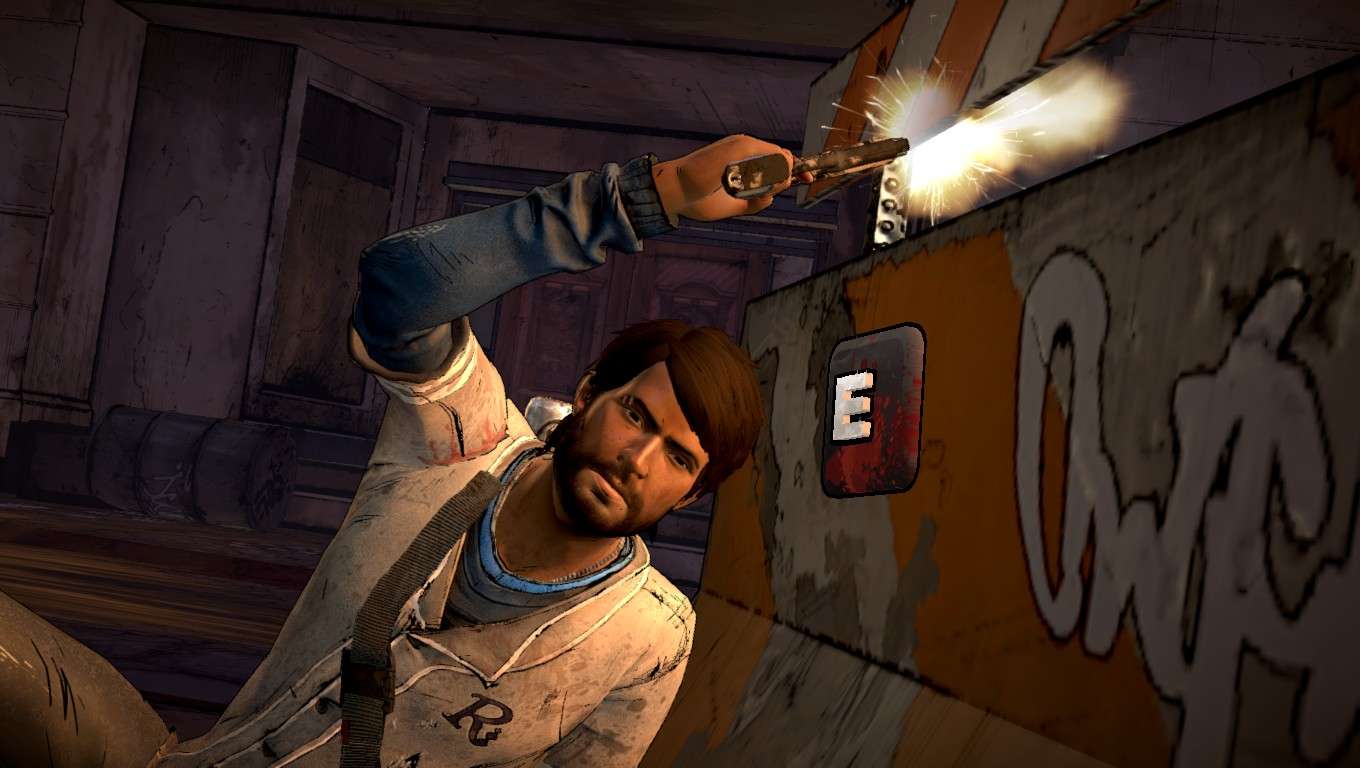
The story line is once again, extremely disappointing for a Telltale game. This episode focuses around the survival of the main characters, finding a way out of Richmond and fighting on two fronts: the followers of Jean and the zombies surrounding the town. But yet again, characters continue to make incoherent decisions. This is perhaps even worse in this episode because the incoherent decisions set up the drama at the end of the game. For the last hour, Gabe seems to rapidly change his mind between hatred of his father and such devotion that he volunteers to leave the rest of his family behind to follow him. This confuses the final decision – whether to go after Gabe or not – since it appears he went of his own accord. Later it transpires that he tried to stop David, but this is not clear at the time. It makes the choices less agonising than the consequences would suggest it should be.
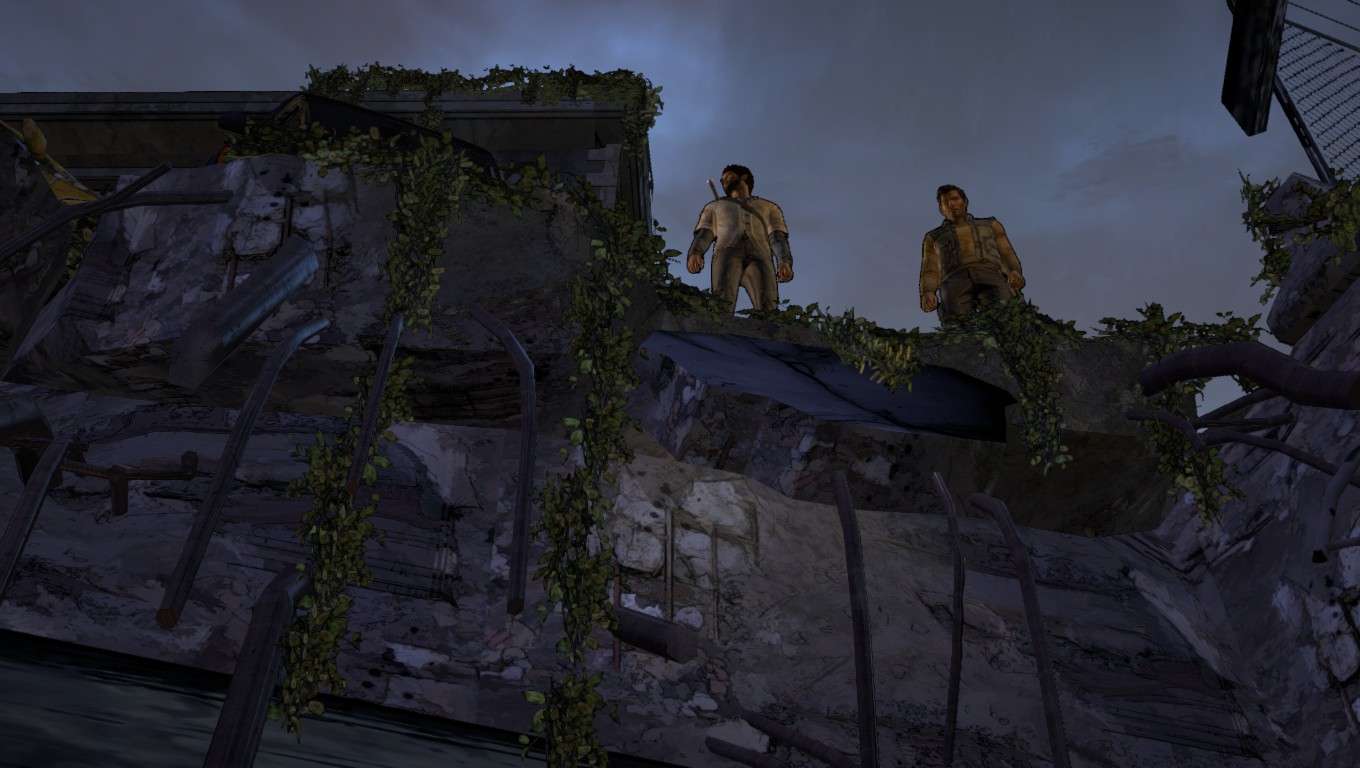
The central theme of the game, which becomes decisively clear in the last episode, is the idea that ‘blood is thicker than water’. Perhaps because I have never had much truck with the concept but I felt that the idea did not play out well at all in this game. David, Javier’s brother, behaved so appallingly, erratically and selfishly, that by the end of the game, it did not matter to me if he was alive or dead, though apparently the game wanted me to feel guilty that I did not attempt to save him. The idea of complex family relationships is difficult to develop in a game which only focuses on them in brief flashbacks and it is impossible to feel that fraternal bond between the brothers, when David has been set up as consistently awful. Maybe I am wrong, but simply being family doesn’t entitle a brother to be insulated from his poor and violent choices, though the game seems to imply the opposite and that the player should feel guilt for somehow failing him.
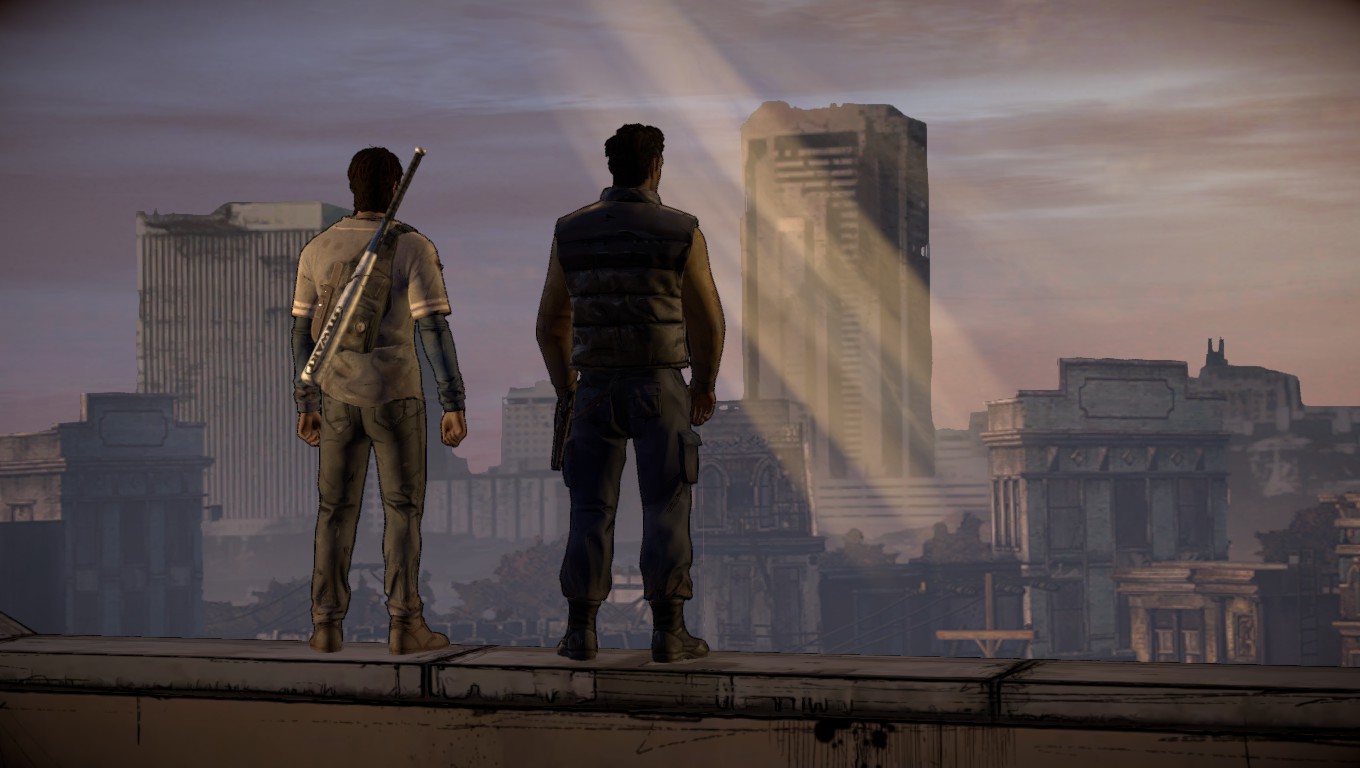
The dialogue, whilst not as consistently bad as the previous episodes, was still very dubious. For example, Clementine analogises Javier losing his job in baseball, a career he loved but which he lost through his own roguish behaviour, with losing a child. This was such a strange and out of place comparison, that it seemed forced to give the appearance of cohesive theme.
Although I did write about this in my review of the last episode, it was still intensely annoying that my choices from the second episode remained absent. This led to a few dialogues which were initially confusing until I realised that it was due to that very inconvenient bug. For example, Clementine accused me of using her as a hostage, and Conrad was alive and well in Richmond at the very end of the game, despite Javier shooting him earlier in my game.
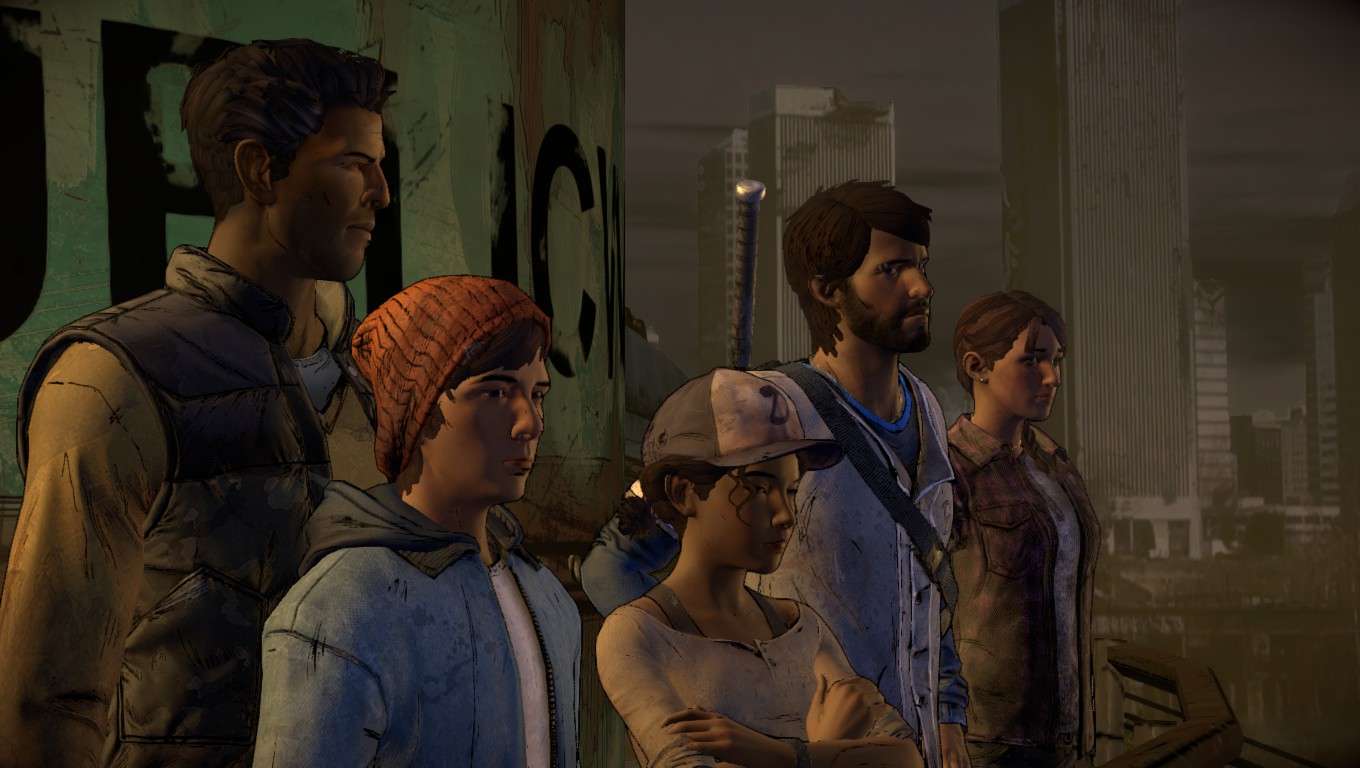
Technically, there were no other bugs obvious in this episode. There were a few parts that lacked polish, for instance, the helicopter blades changed shape at one point and a few background muertos were a bit dodgily animated. However, these are only minor annoyances. In terms of interactions and mechanics, this episode returned to the likes of episode three, where there was little to no roaming interaction, but only quick time events. This is a shame because it really does play out more akin to a mildly interactive film or TV episode than an involved game and distances the player from the narrative in many ways. The past seasons of The Walking Dead had always been borderline on this issue but Season 3 seems to have fully tipped towards minor interaction. In this way, Life is Strange really showed up Telltale with a fully interactive, narratively focused and similarly priced game, so it is surprising Telltale have entrenched their approach to mechanics in this iteration, two years after the release of the Dontnod production.
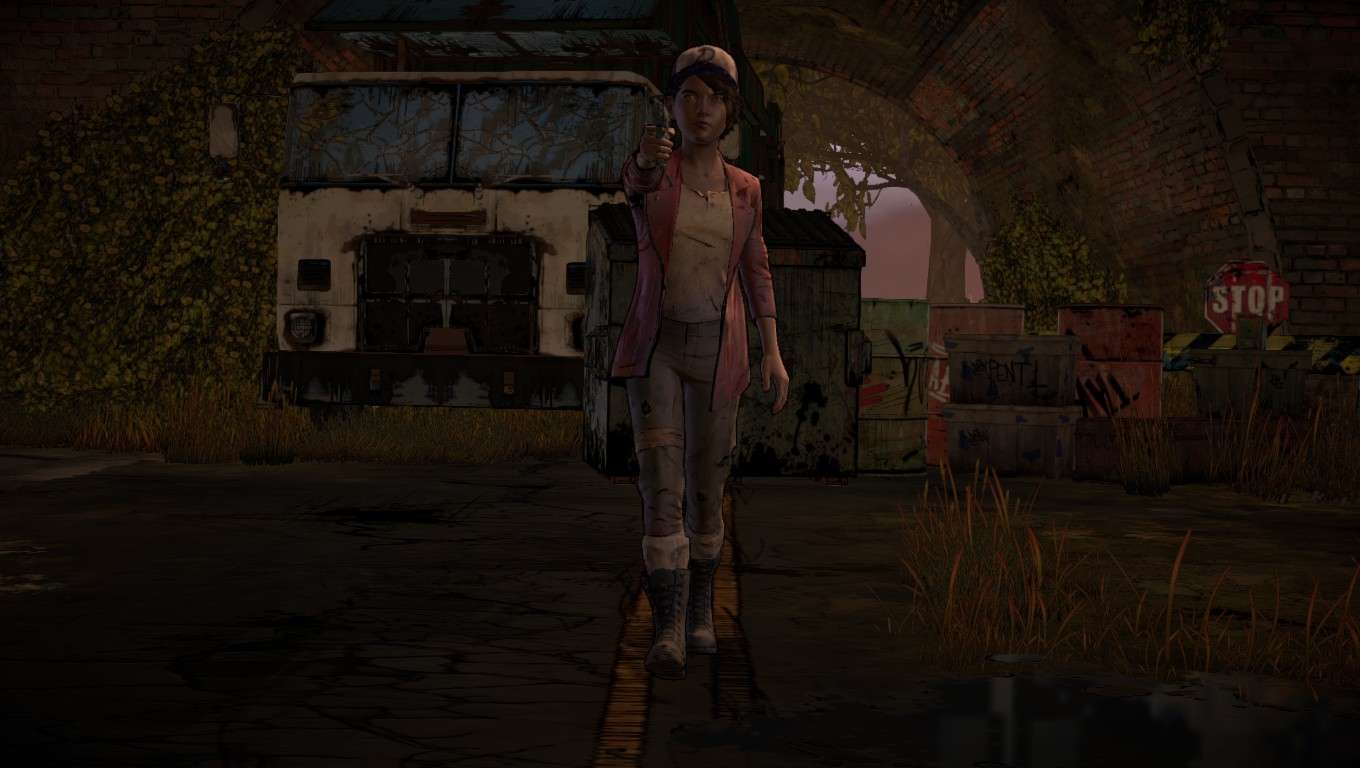
Telltale did have a difficult task of introducing a whole new cast of characters, several years into the apocalypse, and try to make them quickly identifiable and sympathetic. I think they managed it fairly successfully with Javier, who was funny and likeable. And yet, the narrative was not nearly as compelling as Season 1, where all the characters were new but the bonds were slowly and methodically formed between the player and those characters over time and through the lens of the apocalypse. What Season 3 manages is not nearly so deft nor precise. In a way, it skips over those important character based interactions, in favour of throwing the characters into immediate and sudden danger and not pausing from the fraught turn of events for nearly a moment. To feel that those characters are at risk, and to have the player appropriately and emotionally respond to that risk, there must be those moments to contemplate or bond or laugh with the characters – to see them as whole individuals. There was a tantalising moment of this where, in a throw back to the first season, Javier cuts Clementine’s hair and they joke about his lack of hairdressing skills. Unfortunately, it came too late. These semblances of normality and character and relationship development are what this season was sadly lacking in.
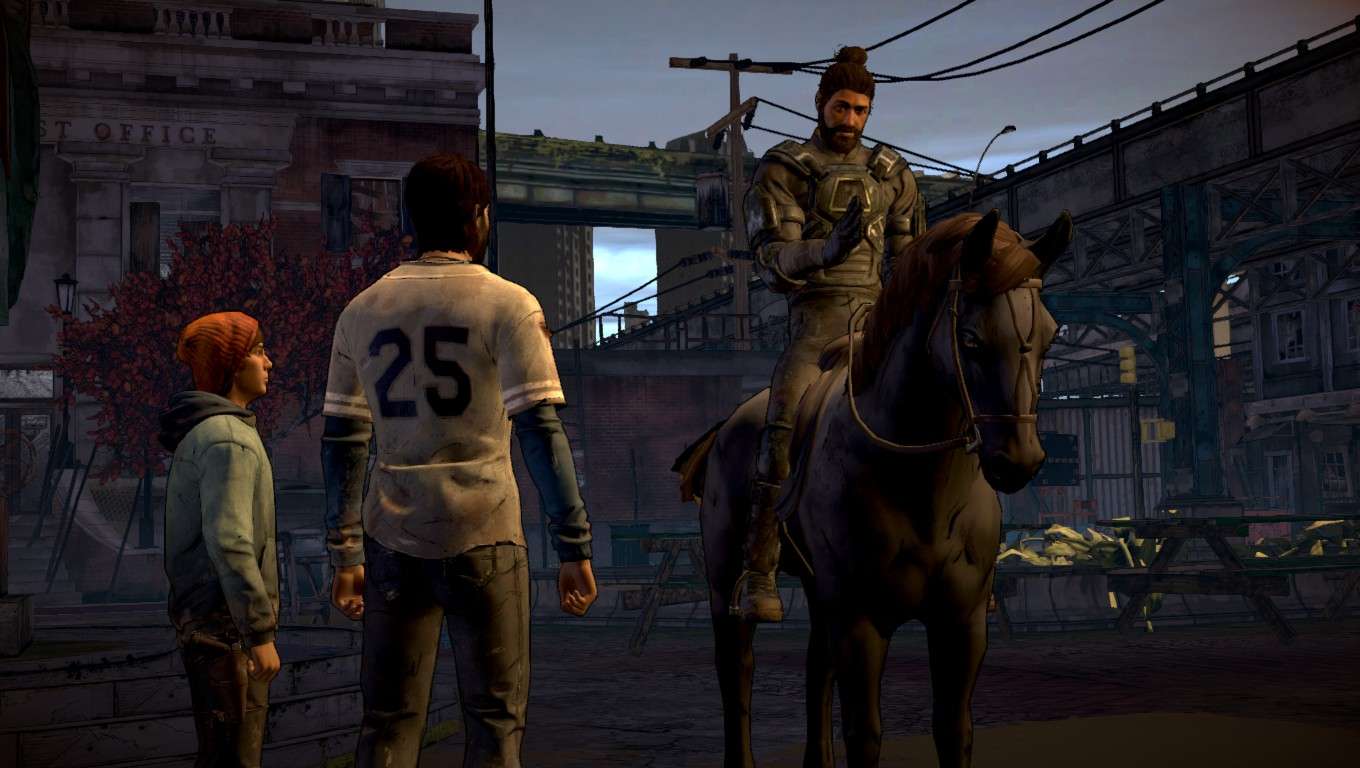
The episode, and the game in general, is not bad. In fact, it is good. There are moments of tension and a narrative that goes some way to engage the player. And since, I’ve been a bit of a downer about the whole thing, I would like to add, the voice acting is superb, as expected. Plus, Jesus turns up again in all his man-bun glory which made for a great ending to his character. But by the standards of Telltale, the episode is simply, and frustratingly, just ‘fine’ or ‘OK’. For any other franchise, this would be par for the course. But for The Walking Dead, a series revered and loved by many, it seems crushingly disappointing.
